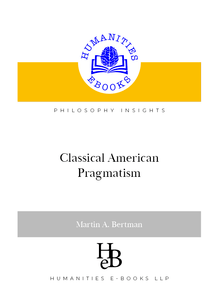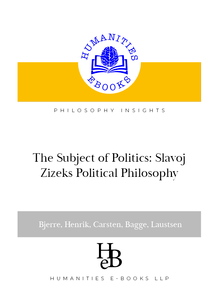-
 Univers
Univers
-
 Ebooks
Ebooks
-
 Livres audio
Livres audio
-
 Presse
Presse
-
 Podcasts
Podcasts
-
 BD
BD
-
 Documents
Documents
-
- Cours
- Révisions
- Ressources pédagogiques
- Sciences de l’éducation
- Manuels scolaires
- Langues
- Travaux de classe
- Annales de BEP
- Etudes supérieures
- Maternelle et primaire
- Fiches de lecture
- Orientation scolaire
- Méthodologie
- Corrigés de devoir
- Annales d’examens et concours
- Annales du bac
- Annales du brevet
- Rapports de stage
La lecture à portée de main
90 pages
English
Découvre YouScribe en t'inscrivant gratuitement
Je m'inscrisDécouvre YouScribe en t'inscrivant gratuitement
Je m'inscris
Obtenez un accès à la bibliothèque pour le consulter en ligne
En savoir plus
En savoir plus
90 pages
English
Obtenez un accès à la bibliothèque pour le consulter en ligne
En savoir plus
En savoir plus

Description
This comprehensive presentation of Roland Barthes's work tracks his intellectual evolution, with particular emphasis on those areas where his influence is felt most strongly today.
Sujets
Informations
| Publié par | Humanities eBooks |
| Date de parution | 11 janvier 2021 |
| Nombre de lectures | 0 |
| EAN13 | 9781847600721 |
| Langue | English |
Informations légales : prix de location à la page 0,0200€. Cette information est donnée uniquement à titre indicatif conformément à la législation en vigueur.
Extrait
Philosophy Insights General Editor: Mark Addis
sehtrBarthes
Mireille Ribière
Barthes’s works remain a central point of reference in a diverse range of cultural debates
httFpor a/dvi/ce own usewof thwis eb.oohk pluease smcrolal tonpagiet2ies-ebooks.co.uk
Copyright
© Mireille Ribière, 2008
The Author has asserted her right to be identiîed as the author of this Work in accordance with the Copyright, Designs and Patents Act 1988.
This edition published byHumanities-Ebooks, LLP, Tirril Hall, Tirril, Penrith CA10 2JE
Readingt
*This book is designed to be read in single page view, using the ‘ît page’ command. *To navigate through the contents use the hyperlinked ‘Book-marks’ at the left of the screen. *To search, click the magnifying glass symbol and select ‘show all results’. *For ease of reading, use <CTRL+L> to enlarge the page to full screen, and return to normal view using < Esc >. *Hyperlinks (if any) appear in Blue Underlined Text.
Permissions
Your purchase of this ebook licenses you to read this work on-screen. No part of this publication may be otherwise reproduced or transmit-ted or distributed without the prior written permission of both the cop-yright owner and the publisher. You may print one copy of the book for your own use but copy and paste functions are disabled. Making or distributing copies of this book would constitute copyright infringe-ment and would be liable to prosecution. Thank you for respecting the rights of the author.
ISBN 9781847600721
© Louis Monier
To Tim
Contents
About the Author Acknowledgements 1. Barthes in Perspective 2.Mythologies Critical Distance Ideology Literary Form and Ideology Myth The Enduring Presence of Myths Demystiîcation 3. Semiology Myth as a System of Communication Saussure’s Deînition of the Linguistic Sign The Mythical Sign Denotation and Connotation The Arbitrary Nature of the Linguistic Sign Semiology Language and Thought The Future of Semiology 4. New Criticism New Interpretations of Past Masterpieces Conventional Literary Criticism New Forms of Literary Criticism The ‘Old Guard’ Strikes Back A Scientiîc Approach to Literature 5. Structuralism Language as a Structure The Origins of Structuralism
The Formalist Approach Vladimir Propp’s Analysis of Folk Tales The Structural Analysis of Narratives 6. Reader, Writer and Text Lexias and Codes The Five Codes Codes, Voices, Threads From Structural Analysis to Textual Analysis From Text to Intertext From Author to Reader Readerly/Writerly 7. Pleasure, the Body and the Self The Theory of the Text Writing The Pleasure of the Text The Body Barthes, Writer 8. Barthes and Photography Camera Lucida/Camera Obscura The Issue of Speciîcity Denotation and Connotation in the Photographic Message Studiumand Punctum The Essence of Photography From Science to Pleasure, from Pleasure to Grief Autobiography 9. Barthes’s Legacy Literature Film Studies Hypertext Theory Fashion, Costume, Theatre An Intellectual Model 10. Paradox: a Way of Thinking Bibliography Hyperlinked Materials
About the Author
Mireille Ribièreis a writer and translator. A well-known specialist of the work of French writer Georges Perec, she has published exten-sively in the îelds of twentieth-century French literature, as well as photography and the visual arts.
Acknowledgements
I wish to thank Jan Baetens and Charlie Mansîeld for their comments on the original manuscript as well as Mel Thompson and Helen Hart who initiated the îrst edition and saw it to completion.
1. Barthes in Perspective
Roland Barthes (1915–1980), was probably the most important French thinker to emerge from the post-war period. He was part of every major intellectual movement in the humanities that came out of Metropolitan France between 1945 and 1980 and he became a îgure of international repute. At a time of great social, political and intel-lectual change, Barthes represented an unconventional, yet often rig-orous, way of thinking which had considerable appeal. Unlike many inuential îgures in the history of ideas, Barthes did not make a ground-breaking intellectual discovery which he then proceeded to reîne and expand. From the start, Barthes borrowed elements from theories developed by others. He combined and used these elements to build his own original theories and having achieved recognition for his endeavours, he would simply move on. As he suc-cessively distanced himself from what he had initially expounded, he proceeded to offer new ways of looking at things. The result is a mul-tifaceted body of work in which successive generations have found interest and intellectual stimulation. Barthes was born on 12 November 1915 in Cherbourg into a middle-class family. He was barely one year old when his father, a naval ofîcer, died in combat. His mother then moved to Bayonne, a coastal town in southwestern France, where Roland spent a happy, if lonely, childhood. In 1924, they moved to Paris. Barthes started his second-ary education and made good academic progress, while his mother earned a meagre living as a bookbinder. At the beginning of 1934, the future looked promising: Barthes would take hisbaccalauréatthat year, prepare for the entrance exams to the prestigious École Normale Supérieure and then become a tea-cher. It was not to be. In May 1934, he suffered his îrst attack of pul-monary tuberculosis and spent the best part of the next 12 years in sanatoria and convalescence homes. When he înally recovered, he
-
 Univers
Univers
-
 Ebooks
Ebooks
-
 Livres audio
Livres audio
-
 Presse
Presse
-
 Podcasts
Podcasts
-
 BD
BD
-
 Documents
Documents
-
Jeunesse
-
Littérature
-
Ressources professionnelles
-
Santé et bien-être
-
Savoirs
-
Education
-
Loisirs et hobbies
-
Art, musique et cinéma
-
Actualité et débat de société
-
Jeunesse
-
Littérature
-
Ressources professionnelles
-
Santé et bien-être
-
Savoirs
-
Education
-
Loisirs et hobbies
-
Art, musique et cinéma
-
Actualité et débat de société
-
Actualités
-
Lifestyle
-
Presse jeunesse
-
Presse professionnelle
-
Pratique
-
Presse sportive
-
Presse internationale
-
Culture & Médias
-
Action et Aventures
-
Science-fiction et Fantasy
-
Société
-
Jeunesse
-
Littérature
-
Ressources professionnelles
-
Santé et bien-être
-
Savoirs
-
Education
-
Loisirs et hobbies
-
Art, musique et cinéma
-
Actualité et débat de société
- Cours
- Révisions
- Ressources pédagogiques
- Sciences de l’éducation
- Manuels scolaires
- Langues
- Travaux de classe
- Annales de BEP
- Etudes supérieures
- Maternelle et primaire
- Fiches de lecture
- Orientation scolaire
- Méthodologie
- Corrigés de devoir
- Annales d’examens et concours
- Annales du bac
- Annales du brevet
- Rapports de stage
Signaler un problème
YouScribe
Le catalogue
Le service
© 2010-2024 YouScribe




















